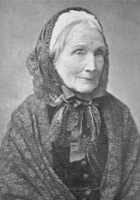The Meeting Of Plato And Horace In The Elysian Fields. Poem by Bessie Rayner Parkes
The Meeting Of Plato And Horace In The Elysian Fields.
AMONG the crowd, one, with a gayer face
Than most, came swaggering; the Sabine Bard,
The Roman Priest of Song, with grape-leaves crown'd,
And tendrils of green ivy intermix'd.
'I' faith,' quoth he, in his sweet easy voice,
And tender'd Plato sundry vellum leaves,
Whereon were writ some lines, unforc'd and few
In liquid fire indited, which flash'd up
Like eastern jewels, or the dawning beam
Shed by the sun on dew-besprinkled vines,
In clusters hanging on Falernian hills,--
'I' faith,' quoth he, 'these summer songs shall be
Torches enkindled on the sea of Time,
No waves shall whelm them, and no breezes kill,
Or deep night quench their lustre. They shall float
And glitter midst the surges, dropping fire.
Read these, old Plato; I warrant they will chafe
Thy dull blood to a quick and dancing flow;
Thou hadst no odes like these in thy life's day!
'Too many poets!' When humanity
Shall lie i' the sun and dream, and weary cares
Cease to weigh down the fainting hearts of men;
When Pelion shall on Ossa be upheav'd,
And men or Titans climb their steeps to heaven;
When Time shall fold his wings, impartial Death
Cut down the beggar's boy and spare the king's;
Then from thy pillow banish songs like mine.
Meantime I sing the glories of the grape,
The midnight revel and the morning chace,
Preach patience to the poor, and teach the rich
How peace can dwell upon a Sabine hill.
'Too many poets,' Plato! Monarchs love
Such wit as mine to speak their victories;
Young maidens love to listen to my lyre
(Jove's benison on their sweet eyes!), and boys
Sing o'er in treble tones my martial strains.
There is much honesty in me, old sage,
Much sober thought amidst my jollity,
Much maxim wise by rattling tongue enforc'd;
Did I not ceaseless warn of life's brief span,
The approach of night, the unerring stroke of Death,
To rich and poor alike, harsh summoner?'
'Of Death,' said Plato, 'yea, to bid men drink,
And waste the night in tumult; to besmear
The stately Roman face with purple wine,
And all the long bright hours of summer days
By glittering fountains stretch their lazy length
Beneath green canopies, jesting to maids
With water-pitchers on their graceful heads.
A worthy citizen of mine wert thou!
A guide in our Republic, verily!'
The Sabine Poet stood,--and on his brow
A serious shade stole quietly, while thus
He answer gave the Athenian: 'For mine age
I was scarce worse than other men; they lov'd--
Those royst'ring Romans of th' Augustan age--
To quaff the bowl and sing of ladies' smiles;
But in this was I nobler--I have wrought
Rich gems of imagery, legends of the past,
Replete with glorious music,--and with tears.
I soften and refine; my name shall last
Long in the loving hearts of men, a niche
Kings should be proud, most proud, their form should fill;
And for the imperishable good I did,
Mine evil be forgotten by mankind.'
This poem has not been translated into any other language yet.
I would like to translate this poem